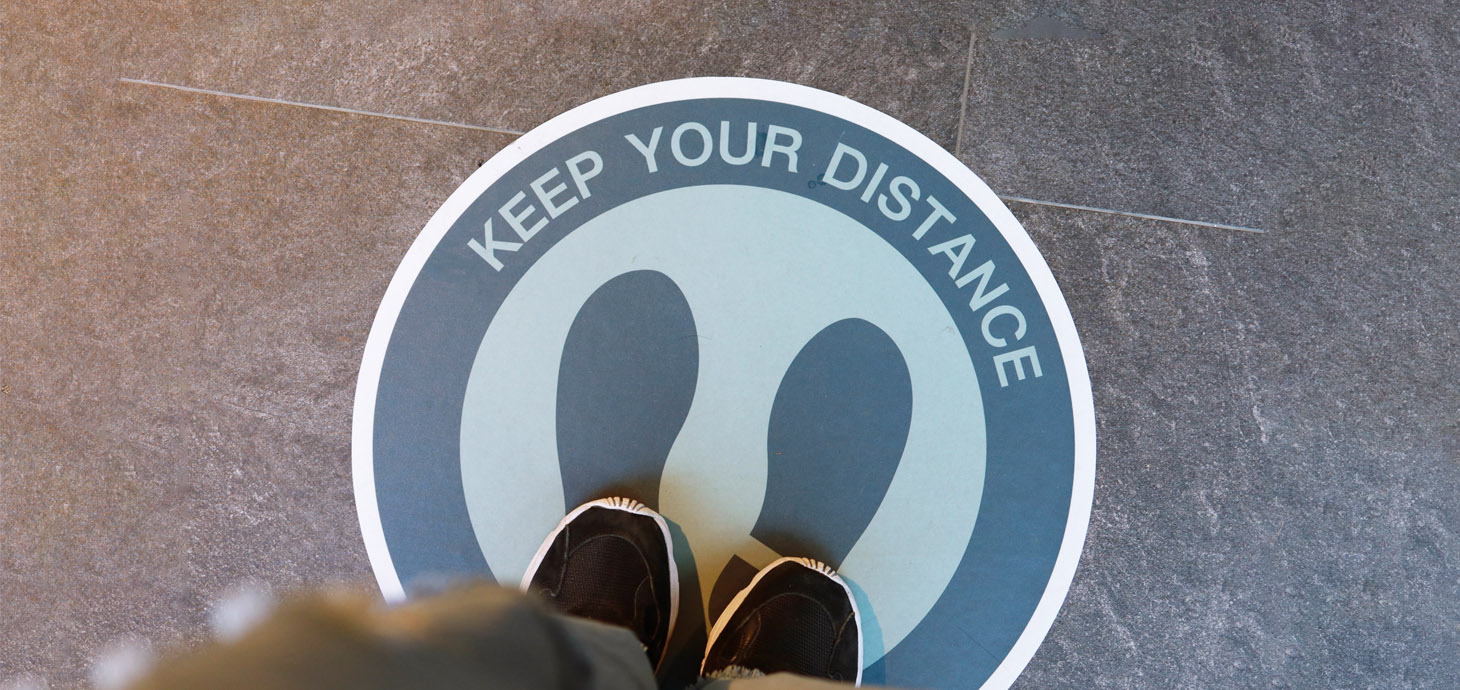These articles are now archived and will no longer be updated.
New study examines how Covid-19 safety measures are leading to increased anxiety and avoidance behaviour

A new Swansea University study is being launched to investigate how following Covid-19 safety measures may have the unfortunate effect of making people feel less safe, leading to increased anxiety and people avoiding situations and places they once considered safe.
One-way systems, social distancing, using hand sanitiser, wearing face coverings and other public health safety measures have become part of day-to-day life during the Covid-19 pandemic, and academics from Swansea University’s Department of Psychology believe that following these rules may actually be making people feel more anxious, meaning they’re likely to engage in avoidance behaviour — staying home and avoiding going to places like supermarkets, cinemas and cafes.
Following £65,000 of funding from the Welsh Government Office for Science (Sêr Cymru Tackling Covid-19), researchers will now work to develop a better way of understanding people’s decisions behind engaging in avoidance when faced with novel threats.
Dr Martyn Quigley, lecturer in psychology at Swansea University, said: “This major new study will explore the psychological factors which may lead to avoidance, such as loneliness, stress and depression. In doing so, we hope to identify those people who are most at risk of displaying this avoidance behaviour, which we know can have a significant impact on quality of life.”
Participants in the study will complete an online experiment, which will see them engage with both threatening and safe stimuli. The task is adapted from those regularly used in the laboratory to identify shifts in avoiding threatening events to avoiding safe events, and the mechanisms that can cause this shift to occur.
Nearly half of the UK’s population have reported feeling extremely anxious during the pandemic, according to the Office for National Statistics, and according to a Public Health Wales report, many in Wales report a reluctance to resume normal activities until there is no threat of coronavirus.
Dr Daniel Zuj from Swansea’s Department of Psychology believes that avoidance is already having a significant impact on people’s lives: “Some charities are reporting that people are going hungry due to anxiety about Covid-19, as they are afraid to go to the shops. Welsh health boards have also reported that they are seeing increases in anxiety and are expecting to see a surge in referrals as we move into the winter.”
Professor Simon Dymond, professor of psychology and behaviour analysis, said: “It is crucial that we understand the psychological factors associated with the risk of problematic avoidance during these unprecedent times. This study will examine whether the protective reminders of Covid-19 increase the perceived threat of contracting the virus. It will cast light on how the people of Wales are dealing with threats posed by previously safe situations and, in so doing, it will help us to gain a better understanding of how to target help for those who need it the most.”
